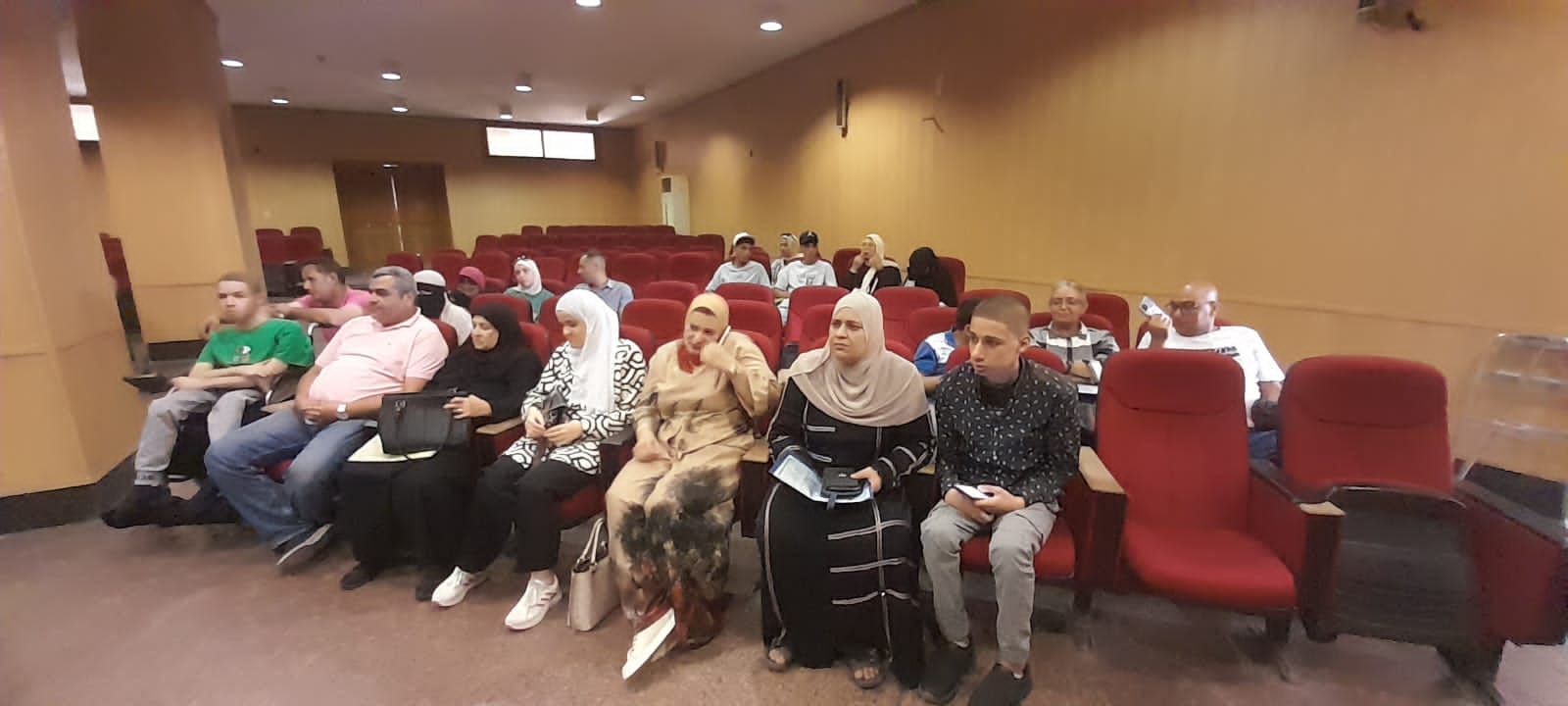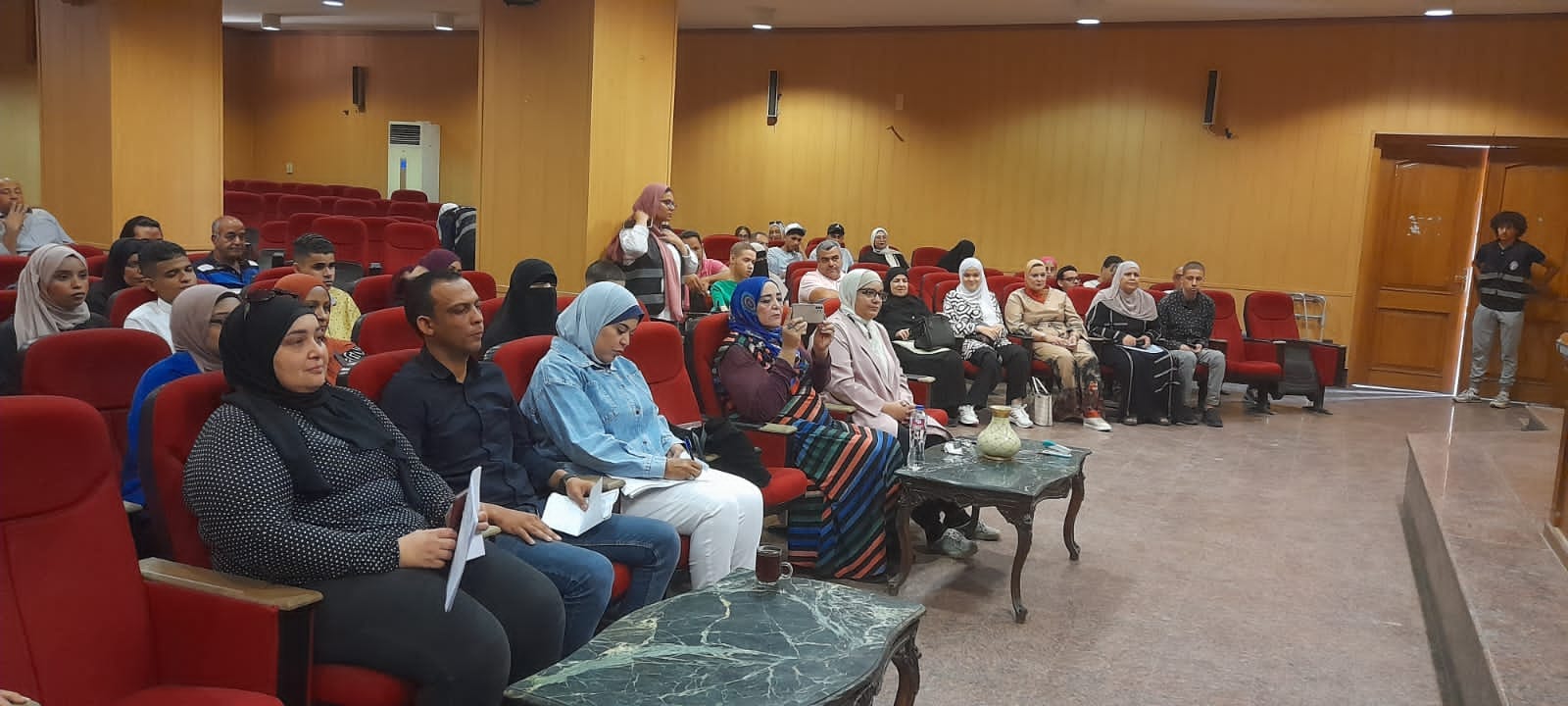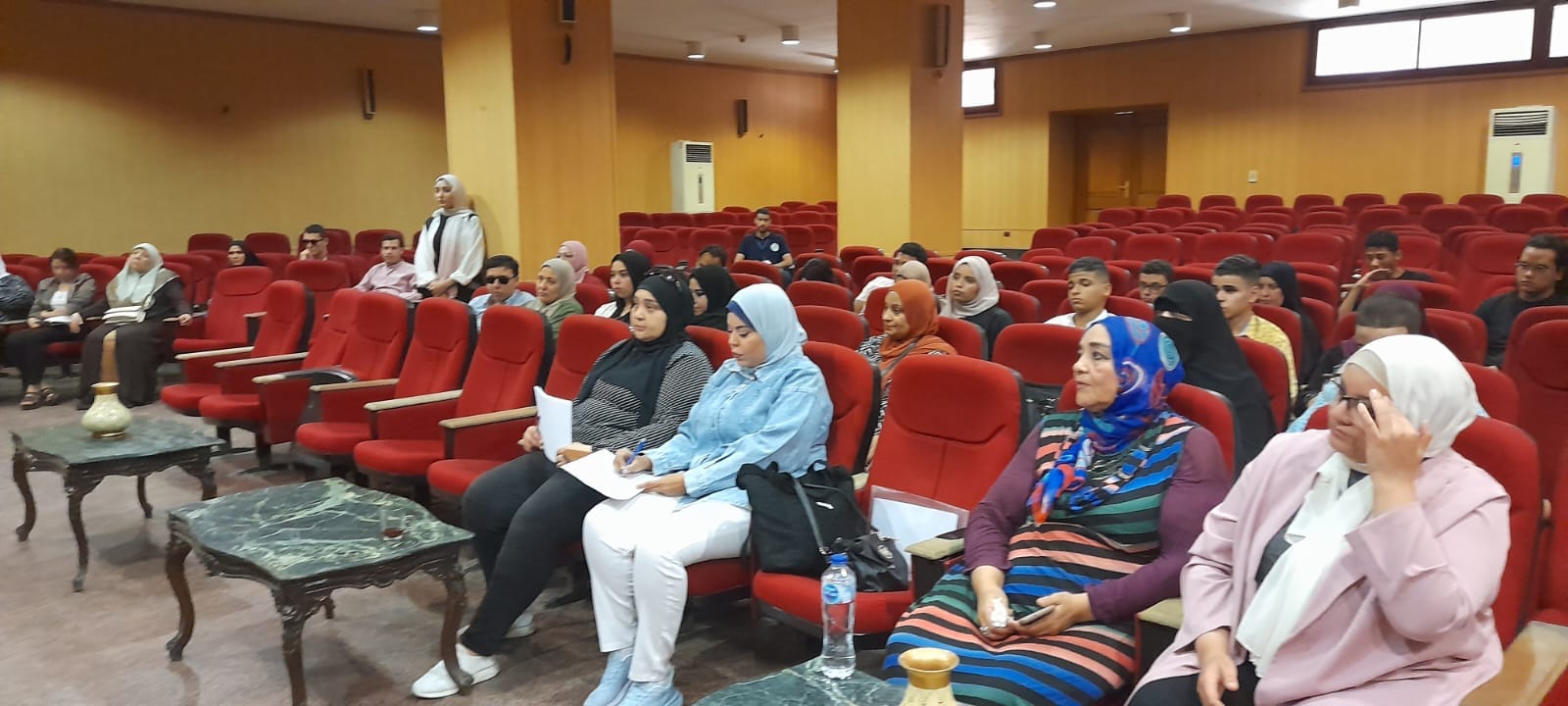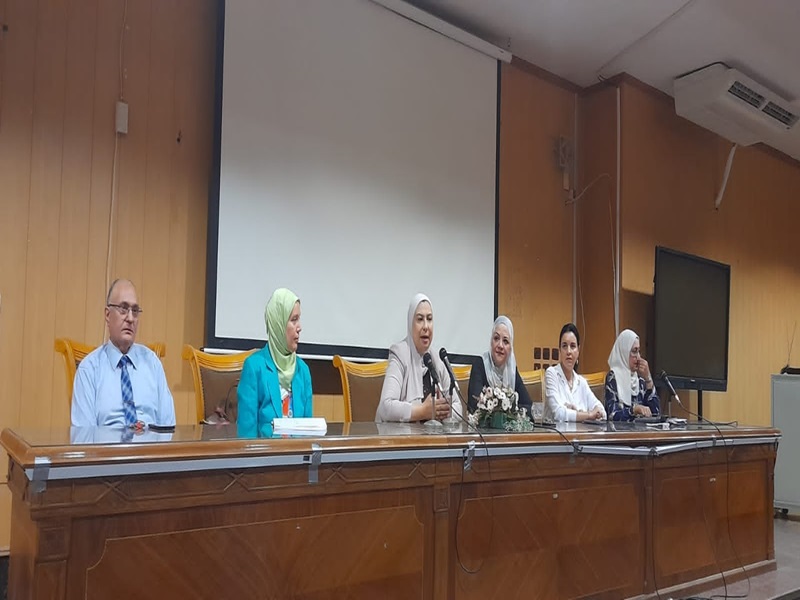For the first time... The Faculty of Al-Alsun organizes an introductory day for integration students and the blind enrolled in the faculty
The Faculty of Al-Alsun at Ain Shams University organized for the first time an introductory meeting for integration and blind students, under the patronage of Prof. Mohamed Diaa Zain El-Abedeen, President of the University, Prof. Ghada Farouk, Vice President for Community Service and Environmental Development Affairs, Prof. Salwa Rashad, Dean of the Faculty, in the presence of Prof. Hala Sayed, Director of New Programs at the Faculty, and the heads of the scientific departments in which integration and blind students are accepted.
During her opening speech, Prof. Salwa Rashad, Dean of the Faculty, stressed that the state's strategic directions come at the top of its priorities the care of students with disabilities and the provision of the highest levels of care and support in various sectors of the state.
 |
 |
 |
||
She also stressed that the faculty is committed to providing the utmost care for students with special needs, scientifically, culturally and health-wise, but in return, the student must perform his assigned role by committing to learning computer skills and developing his language skills, relying on his personal effort in cooperation with faculty staff and teaching assistants.
She continued by saying that creating opportunities for students with special needs is widely open through the Faculty of Al-Alsun and the cooperation protocols it concludes to serve them, as a number of diligent students with special needs have now become members of faculty staff and teaching assistants at the faculty. The faculty also provides training opportunities and grants provided by embassies to diligent students with special needs.
While Prof. Hala El-Sayed, Director of New Programs at the Faculty, introduced the Faculty’s departments, scientific sections, and services provided by the Faculty to students with special needs. She pointed to the Rafiq Al-Darb Library, which is dedicated to helping blind students by printing using Braille, as well as computers equipped with specialized programs to help the visually impaired and blind perform their tests themselves through them.
She also mentioned that care for students with special needs is not limited to the educational role only, but includes recreational services through various student activities, as well as caring for students' special talents and developing and nurturing them in various fields.
The heads of the scientific departments also provided definitions of the departments and explained some matters related to studying in them, including job opportunities available to students with special needs.
Finally, the faculty administration provided all student affairs services and received their files in the conference hall, and completed all procedures in their places, and the students were directed to the medical clinic to sign the medical examination immediately.


.svg)

